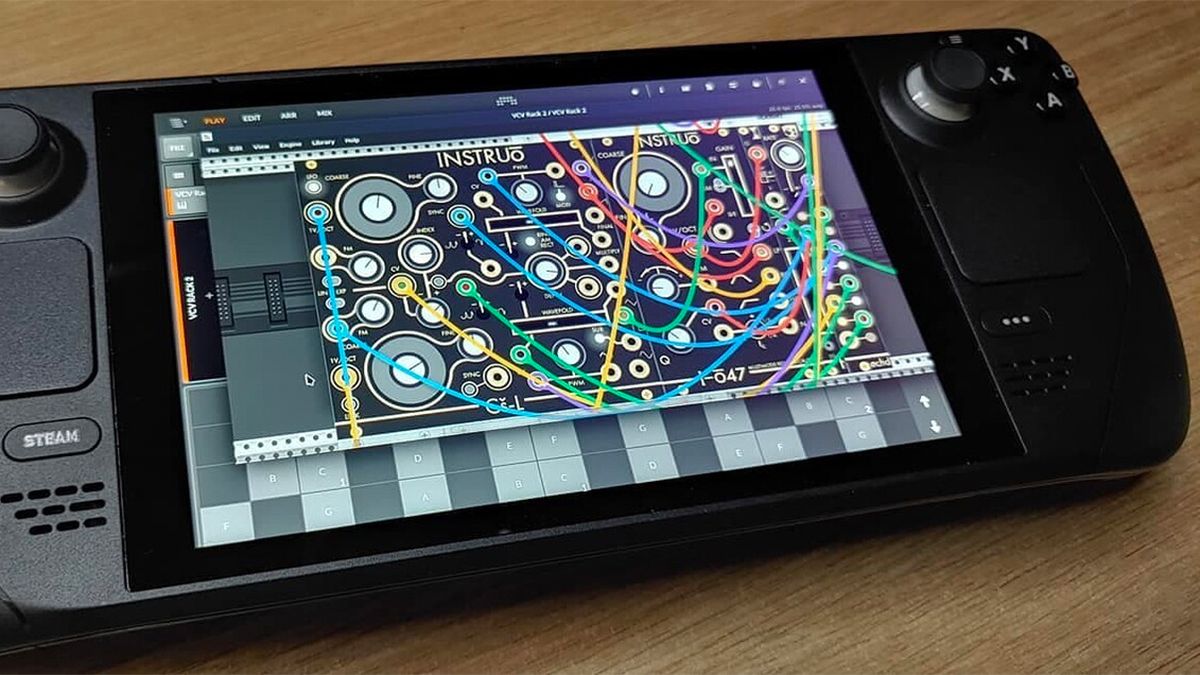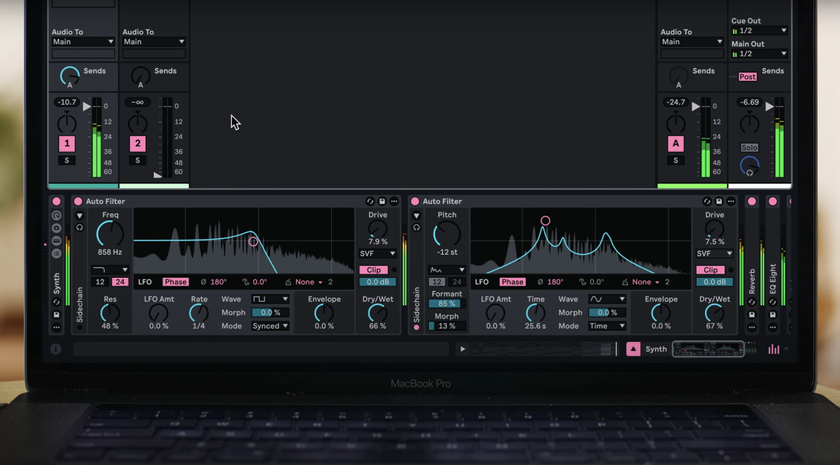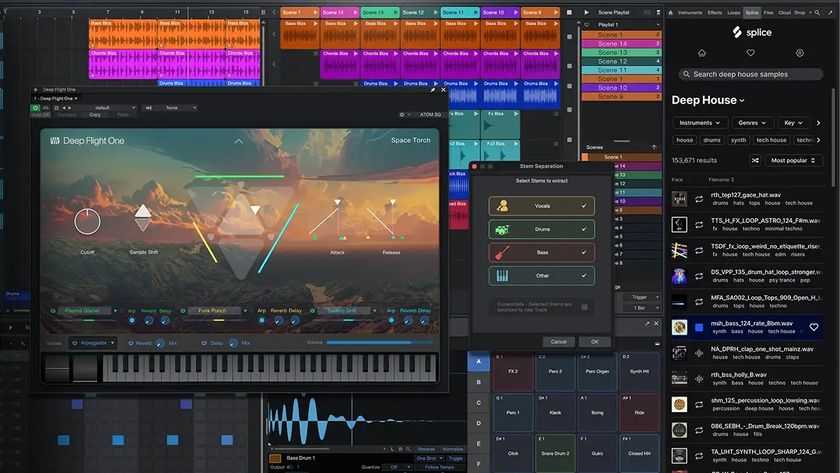Valve Steam Deck can run Bitwig’s DAW and the VCV Rack 2 Pro synth as a plugin: a gaming handheld that music producers should be interested in, too?
Linux-based portable gaming PC has a few creative tricks up its sleeve

We’ve seen a smattering of music-making apps on the Nintendo Switch - Korg’s Gadget, for example - but if you want a handheld that enables you to run a desktop DAW, it turns out that Valve’s new Steam Deck could be a better option.
CDM reports that both Bitwig Studio and VCV Rack 2 Pro (as a plugin) can already run on this new handheld gaming PC, which was released in February and enables you to access your full Steam library on the go (there's also a dock so you can hook it up to an external display). It uses a Linux-based operating system, but compatibility with Windows PC games is also possible thanks to a Proton compatibility layer.
The upshot of all this is that Steam Deck should be capable of running all music software that’s Linux native (hence the compatibility with Bitwig and VCV Rack). Running certain Windows PC plugins isn’t out of the question, either.
CDM got the inside scoop from musician Aroon Karvna, who’s been testing the Steam Deck as a portable music-making device. Whether a machine like this would be preferable to an iPad in this context is debatable, but it could be a platform worth keeping an eye on.
Good luck getting hold of a Steam Deck, though - even if you reserve one now you probably won’t be receiving it until the last quarter of this year. The cheapest version, which has 64GB of storage, costs £349, with prices rising to £459 and £569 for the 256GB and 512GB models respectively.
Find out more on the Valve website.

Get the MusicRadar Newsletter
Want all the hottest music and gear news, reviews, deals, features and more, direct to your inbox? Sign up here.



I’m the Deputy Editor of MusicRadar, having worked on the site since its launch in 2007. I previously spent eight years working on our sister magazine, Computer Music. I’ve been playing the piano, gigging in bands and failing to finish tracks at home for more than 30 years, 24 of which I’ve also spent writing about music and the ever-changing technology used to make it.












